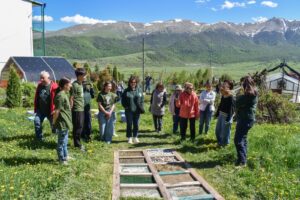YEREVAN (RFE/RL) — International observers gave a mixed assessment of Armenia’s parliamentary elections this week, praising the pre-election environment in the country but reporting irregularities in a “significant number” of polling stations on voting day.
In their preliminary findings that fell short of the Armenian government’s expectations, the nearly 300 observers mostly deployed by the Organization for Security and Cooperation in Europe (OSCE) avoided stat- ing whether the vote was democratic.
“Armenia deserves recognition for its electoral reforms and its open and peaceful campaign environment but in this race, several stakeholders too often failed to comply with the law and election commissions too often failed to enforce it,” said Francois- Xavier de Donnea, a Belgian parliamentarian who heads a group of short-term OSCE monitors. “As a result, the international commitments to which Armenia has freely subscribed were not always respected.”
“The election campaign was open and respected fundamental freedoms, and the media offered broad and balanced coverage during the official campaign period,” said Radmila Sekerinska, an observer mission leader representing the OSCE’s Office for Democratic Institutions and Human Rights (ODIHR). “Unfortunately, this was over- shadowed by concerns over the accuracy of voter lists and violations of the Electoral Code that created an unequal playing field.”
Representatives of smaller monitoring teams deployed by the European Parliament and the Council of Europe’s Parliamentary Assembly (PACE) agreed with this conclusion. Emma Nicholson, who led the 27-strong PACE team, expressed concern over “reports of widespread interference with the running of polling stations, voters’ movement and casting of votes throughout the day by certain political parties.”
“The authorities must address this unacceptable behavior before the presidential election next year,” Nicholson said at a joint news conference with de Donnea and Sekerinska.







